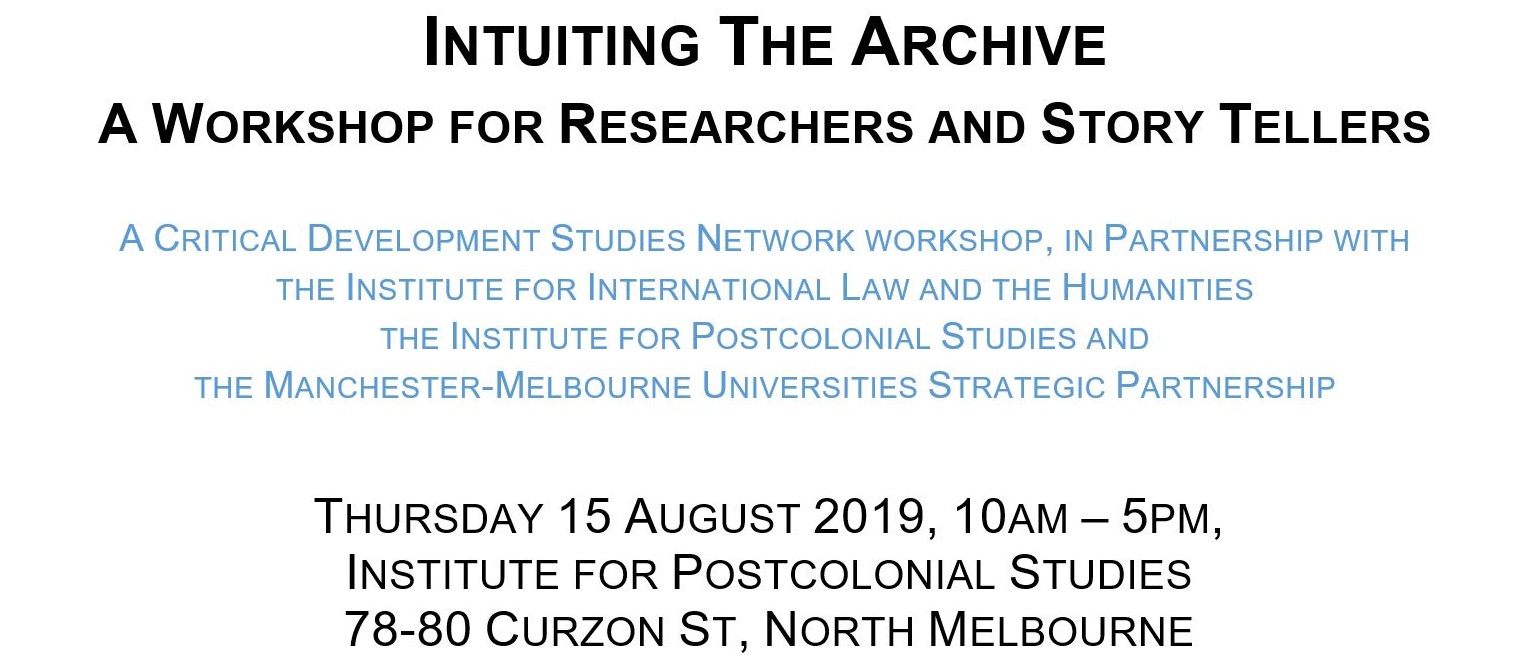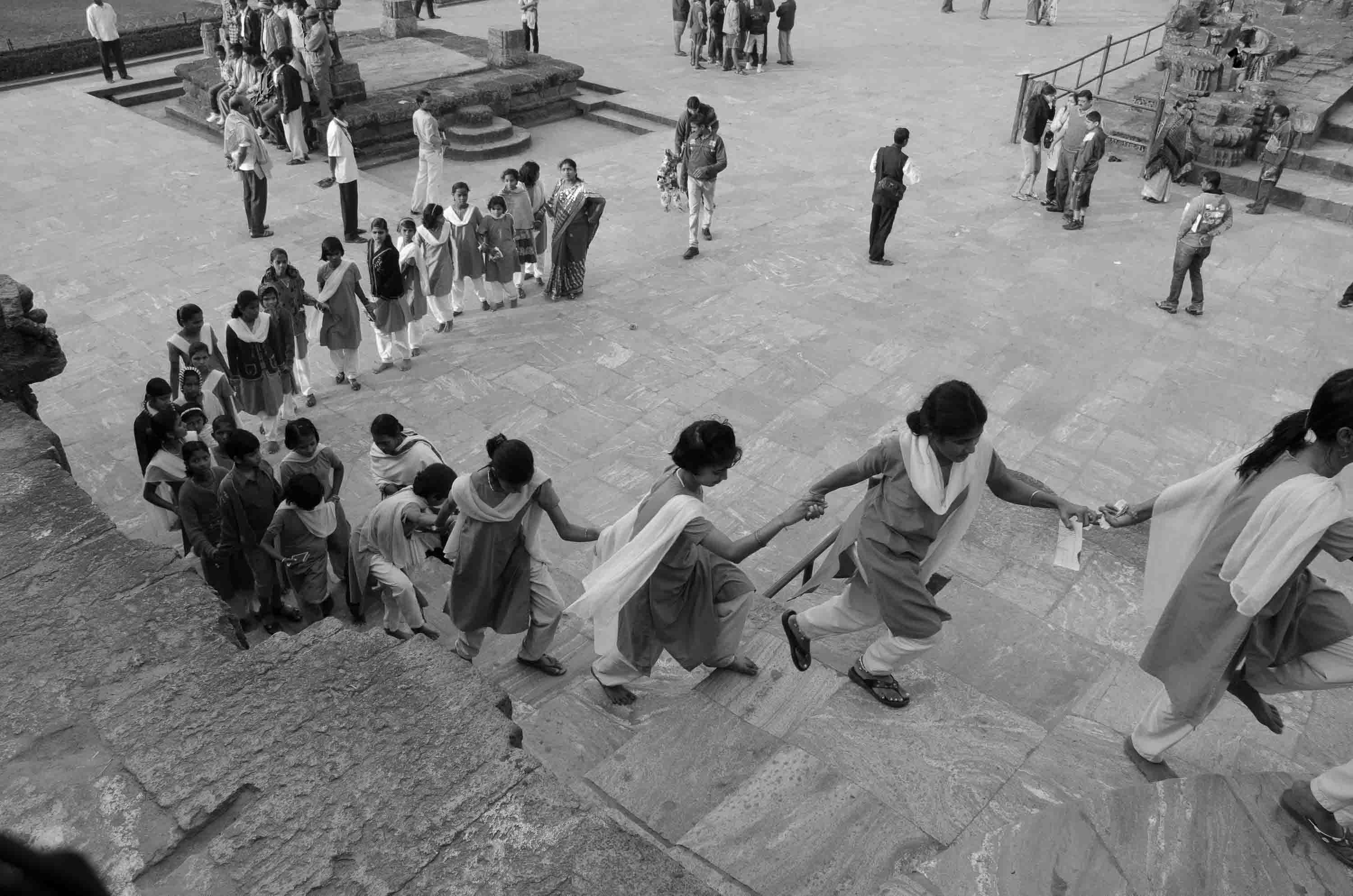
This is a workshop for those of us who intuit our way through the Archive. We have never been formally trained in archival research and have a suspicion that Historians know more about how to do this. We are anxious about leaving out important voices and about how much we can infer. Most of the time we depend on luck, serendipity and coincidence. We use our instincts and intuit.
It is also a workshop for all of us who want to advance a decolonial agenda in our work. We reflect upon what it means, ethically and politically, to use the Archive to tell stories. We wonder how we can confront colonial epistemologies and silences. We want to use methodologies and ways of gathering and using knowledge that go beyond the Archive, to augment its narrative power and take it in new, more just directions.

Participation
Places are limited at the workshop. To participate, please email uma.kothari@manchester.ac.uk and sam.b@deakin.edu.au and let us know about your work. All welcome, from HDR students to established scholars, and those working with the archive from outside the academy. The workshop flyer is now available for download.
Partners
Critical Development Studies Network
Institute for International Law and the Humanities
Institute for Postcolonial Studies and
Manchester-Melbourne Universities Strategic Partnership
Provocateurs
Tiffany Shellam is Senior Lecturer in History at Deakin University. She researches and publishes on the history of encounters between Aboriginal people and Europeans in the contexts of exploration, early settlement and mission stations in the nineteenth century. Her most recent project has been a collaboration with Noongar people in Western Australia
to establish methodologies for historical research that are ethically sensitive and meaningful for the Noongar community.
Ann Genovese is an Associate Professor at the Melbourne Law School. As an Australian historian, and a jurisprudent, she researches: the relationship between Law and History as disciplines and practices; the nature of legal archives and the responsibilities of custodians and writers towards them; and the sources, forms and techniques necessary to show how Australian people have lived with their law. She has explored these interrelated concerns across multiple sites and projects, and her work has been integral to the establishment of an emergent field - contemporary histories of Australian jurisprudence. Ann has collaborated with leading scholars from law, history, feminist theory and Indigenous studies, as well as with members of the judiciary and profession. She has been the successful recipient of ARC funding on several projects, most recently The Court as Archive (with Kim Rubenstein at ANU and Trish Luker at UTS).
Louise Doyle is Assistant Director-General, Access and Communication at the National Archives. She has more than 25 years of experience in the museum and heritage sector, including as director of the National Portrait Gallery. In 1997 Louise completed a Masters in Art Administration at the University of NSW, College of Fine Art. She also has a Bachelor of Arts degree majoring in fine arts and archaeology from Sydney University, a Graduate Diploma in Education (Visual Art Specialist) and a Graduate Diploma in Gallery Management. Louise has contributed to the ongoing development of the visual arts and museum sector in Australia as director of the Regional Galleries Association of New South Wales Board, director of Crafts Queensland Board, and advisory committee member of Canberra Museum and Gallery and director of the Canberra Convention Bureau. She is currently an active member of the University of Queensland Art Museum Board. Louise commenced as Assistant Director-General Access and Communication at the National Archives of Australia in Canberra on 8 October 2013.
Dr Alessandro Antonello is a Research Fellow in the School of Historical and Philosophical Studies at the University of Melbourne. His work has been heavily focused on the environmental and international history of Antarctica and the Southern Ocean in the modern period. His first book, The Greening of Antarctica: Assembling an International Environment (Oxford University Press), was released in May 2019.
The Ethical Sensibilities Occasional Workshop Series is a site for scholars, students, activists, intellectuals, and others who care about the issues our Network focuses on and to talk openly about the murky ethical terrain of global North / South relationships. We strive to create opportunities for debriefing, digesting, discussing and dissecting the challenges researchers face when crossing these boundaries (in either direction), and building meaningful interpersonal relationships while also speaking back to bigger issues, political, economic, social and intellectual. We unapologetically deal with matters of the heart, as well as matters of the mind. The Series is convened by Dr Sam Balaton-Chrimes (Deakin University).